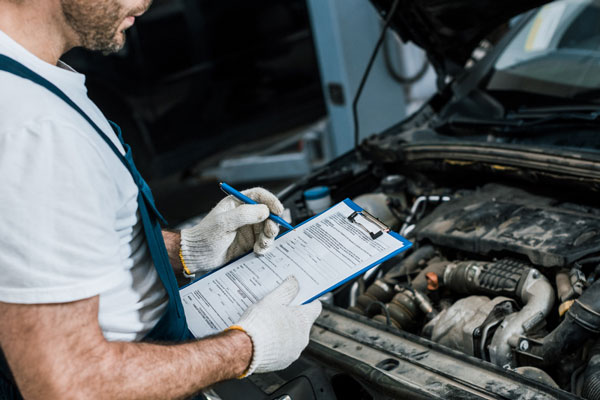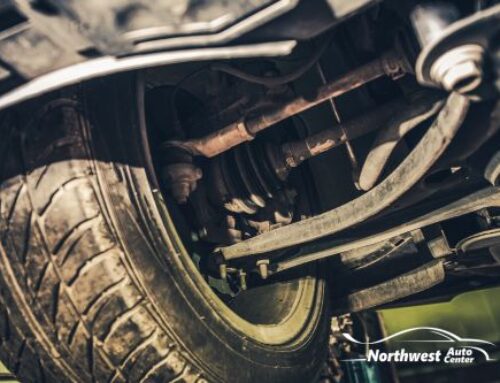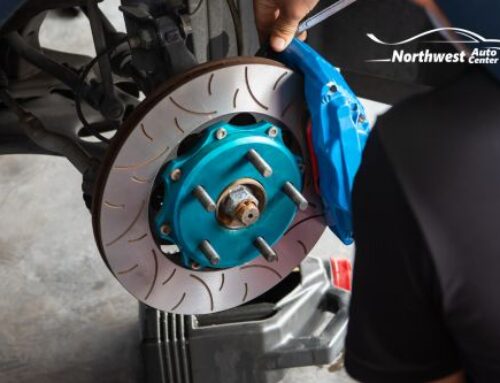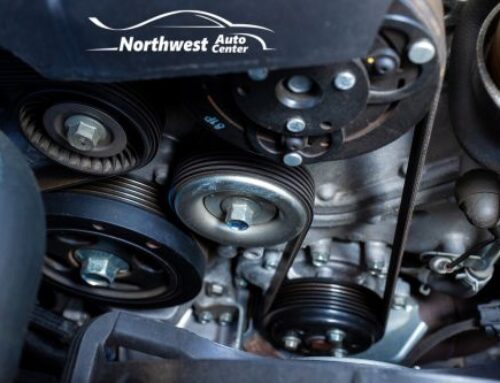Most states, including Texas, require a annual or bi-annual vehicle inspection to register your car. Even in states where vehicle inspections are not required, it would be beneficial and responsible to get an annual or bi-annual car inspection. Getting this done will help ensure your car is safe and working well, protecting you and the drivers you share the road with.

What is a Vehicle Inspection?
A vehicle inspection is government-mandated in most states and follows certain specific and consistent regulations when performed. It is performed on a schedule or when you buy a new car, or in some cases when you get a driver’s license. Vehicle inspections cover all components of your vehicle, making sure everything is in working order. It doesn’t repair issues but finds them and lets you decide how you want to proceed.
Vehicle inspectors have precise criteria that they follow. They will look at every checkpoint even if it has passed an inspection previously.
If you pass your vehicle inspection, you will receive a sticker or document letting the authorities know that your vehicle is safe to be on the road. The stickers change colors frequently to make it easier for police officers to spot them and see if they are out of date. Making it easier for them to spot those late on their inspection.
What Is Checked During Vehicle Inspections?
An inspector will check things as simple as your car horn, windshield wipers, and mirrors. But it also includes things like:
- your brake system
- wheel assembly
- steering
- seatbelts
- tires (both pressure and tread)
- your entire exhaust system
- headlights
- tail lights
- and other lights that you may not even know contribute to your vehicle’s safety.
They will even inspect the tint of your window because, believe it or not, too much tint on your vehicle windows can be unsafe.
The inspection will also include your engine and what is under your hood. They check all fluid levels and conditions from your transmission fluid to your windshield wiper fluid. If your fluids are too low or old, they can affect your vehicle’s safety and efficiency. An inspector will also take a look at your battery.
This checklist is extensive, thorough, and you may think it is excessive. However, this will benefit you as a vehicle owner. It is better to encounter issues during an inspection than driving on a freeway heading to work or a vacation. If your battery is bad or your transmission fluid is low, you will be stalled out on the side of the road. Not only that, but you will have expensive repairs to face, and the cost of a tow truck, a foreign mechanic, and who knows what other surprise costs.
In Texas, vehicle inspections are required to have a registered vehicle. Luckily, the costs are affordable. No matter what type of inspection you are getting, it will cost you less than fifty dollars, with standard annual inspections costing just seven dollars. This is much more affordable than the cost of a breakdown, even if it is a simple repair since you have to account for so many surprise expenses.
Risks of Avoiding a Vehicle Inspection
As mentioned above, it could cost you much more in the long run if you avoid an inspection now, not just in repair costs but in fines from the authorities if you get pulled over.
Not addressing issues, even issues that seem minor, can result in irreparable damage to your vehicle. For example, if your oil is low, you may think it isn’t a big deal, but it can destroy an engine. And let us tell you, replacing an engine does not come cheap.
Even if your vehicle continues to run without breaking down or causing noticeable problems, minor issues will cost you over time (whether in reduced fuel efficiency or from brake fade). Your vehicle’s poor condition can also cause severe pollution through emissions.
The most significant risk is your safety and the safety of all the other innocent people on the road with you.
You may not care about the costs or the slower driving or dealing with the police. Still, those are all minor compared to the actual risk of driving without getting your vehicle inspected consistently. If something wears down in your car, it could cause a wreck that could affect numerous vehicles and, therefore, people. So, if you are contemplating skipping your vehicle inspection, make the responsible, economic, and safe choice and get it done.






Leave A Comment
You must be logged in to post a comment.